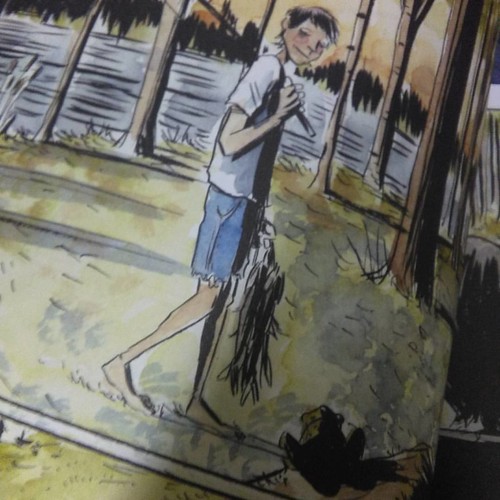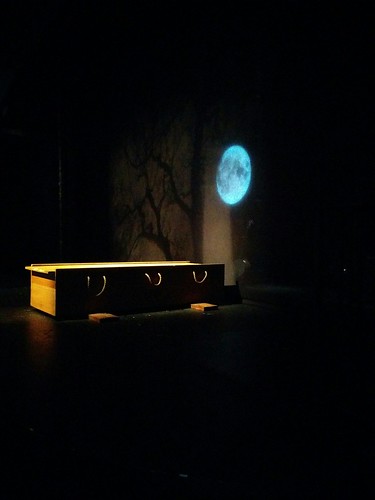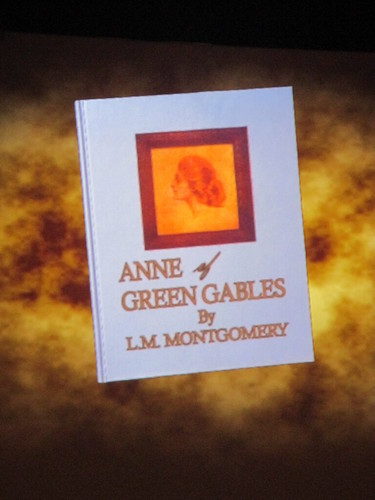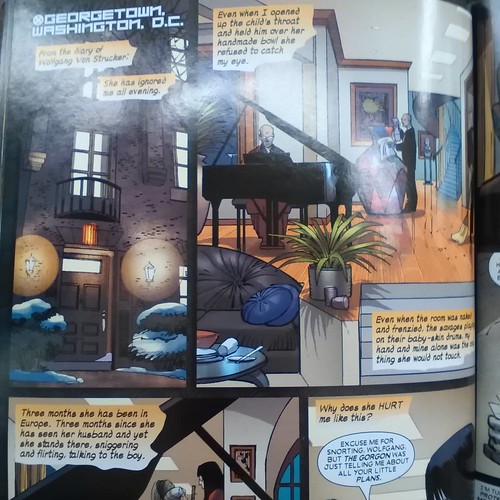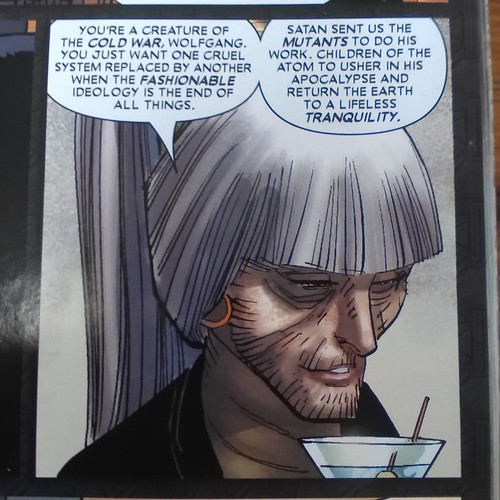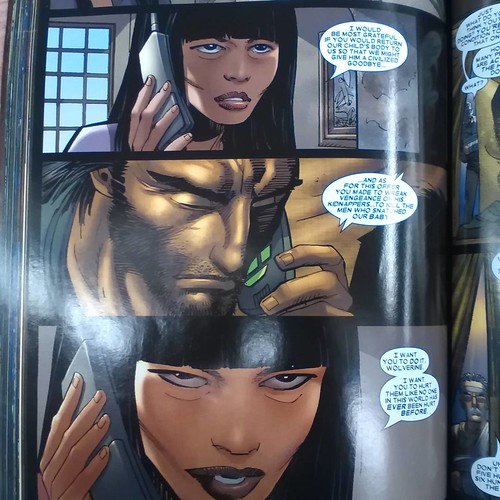I took a look again at my
hardcover edition of
Jane Jacobs's 1980 book
The Question of Separatism after I raised it in a
discussion at a friend's blog about a Scottish currency. From my memory of Jacobs' third book, Jacobs had made a variety of good points about the causes and the outcomes of separatism that were still relevant in the 21st century.
Did
The Question of Separatism live up to my memories? Yes, and no. On the whole, many of Jacobs' arguments made sense at the time they were published, and continued to make sense, certainly worthy of being cited in my
blog post on a hypothetical British-Scottish currency union. My problem with her book is that her central argument, about the inevitability of Québec's marginalization in an increasingly centralized Canada, doesn't hold water and hasn't been supported by the actual experience of Québec and Canada in the thirty-odd years since publication.
(For the curious, the first three chapters are
available online, at the English-language République Libre site.)
The book descends from her 1979 CBC Massey Lectures,
Canadian Cities and Sovereignty Association. Written in the immediate aftermath of the separatist defeat in the
1980 referendum, at a time when
sovereignty-association still seemed a plausible future development, Jacobs was concerned with dismissing what she felt to be the myths surrounding Québec separatism. As it happened, she believed that an independent Québec could be a success, might be necessary if Québec and Montréal were to thrive, and could well be a natural development. Smaller could well be better, and a partially Balkanized Canada not a bad thing.
Take, for instance, the word "Balkanization". Spoken with the ring of authority, "Balkanization" can be made to sound like a compressed history lesson providing the folly of small sovereignties. But what about the Balkans, really?
Before they became small and separate sovereignties, the Balkans had been portions of very large sovereignties indeed, the Turkish and Austro-Hungarian empires. As portions of great sovereignties they had lain poor, backward and stagnant for centuries, so that was their conditions when at last they became independent. If a fate called Balkanization has any meaning at all, it must mean that the Balkans were somehow made to be poor, backward and generally unfortunate by having been cut up small, but this is simply untrue. Or else it has to mean that if Romania, Bulgaria, Yugoslavia and Albania had been joined together in one sovereignty after World War I, or perhaps had been united with Greece to form a still larger sovereignty, they would be better off now. Who knows? In the nature of the thing there is not shred of evidence either to support such a conclusion or to contradict it. (6)
I think that a fair point.
Elsewhere, she deals with and dismisses other myths. Would a Canada absent Québec break apart, like Austria-Hungary? No, Austria-Hungary fell because it was divided after losing a major war. Would an independent Québec be too small to be economically viable? No, there are any number of small rich countries of Québec's size or smaller (Switzerland, Sweden, Denmark, New Zealand) and there are no reasons to think Québec would not be among them. (Québec, she noted, might be a net recipient of federal funds, but per capita it isn't nearly so dependent as the provinces of Atlantic Canada, say.) Are there no models for the peaceful separation of Québec from Canada? Jacobs pointed to the
slow dissolution of the union between Norway and Sweden over the 19th century, as a Norway at first barely autonomous consistently insisted on its privileges and rights after its 1814 cession to Sweden, gradually becoming more of a modern state while its national revival took over until the union peacefully broke in 1905 over the issue of Norwegian representation abroad. Could sovereignty-association work? Jacobs felt that the insistence of Lévesque and other that an independent Québec would keep the currency union substantially undermined the whole project of independence, and that creating a new level of bureaucracy at the Canada-Québec level would further undermine things, but that it might not be a bad starting point. (Jacobs looked particularly to the example of the
Irish pound, established in 1928 at parity with the British pound and remaining there for fifty-one years until the currencies began floating against each other, as a precedent that Québec might like to follow.)
Jacobs' central argument is that the reasons for Québec separatism lie in the age-old rivalry between English Ontario and French Québec, specifically between Toronto and Montréal. She makes the true point that Montréal's decline relative to Toronto started not in the 1960s with the rise of the separatist movement, but much earlier, in the early 20th century. Montréal grew, yes, but Toronto and its hinterland just happened to grow more quickly. I'll quote the passage at length, since this is core to her argument.)
Montreal used to be the chief metropolis, the national economic center of all of Canada. It is and older city than Toronto, and until only a few years ago, it was larger. At the beginning of this century Toronto was only two-thirds the size of Montreal, and Montreal was much the more important center of finance, publishing, wholesaling, retailing, manufacturing, entertainment -everything that goes into making a city economy.
The first small and tentative shifts of finance from Montreal to Toronto began in the 1920s when Montreal banks, enamored of the blue-chop investments of the time, overlooked the financing of new mining opportunities which were then opening up in Ontario. That neglect created an opportunity for Toronto banks. The stock exchange which was set up in Toronto for trading mining shares merged with the old generalized Toronto stock exchange in 1934, and by the 1940s the volume of stocks traded in Toronto had come to exceed the volume traded in Montreal.
During the great growth surge of Montreal, from 1941 to 1971, Toronto grew at a rate that was even faster. In the first of those decades, when Montreal was growing by about 20 per cent, Toronto was growing by a rate closer to 25 percent. In the next decade, when Montreal was adding a bit over 35 percent to its population, Toronto was adding about 45 percent. And from 1961 to 1971, while Montreal was growing by less than 20 percent, Toronto was growing by 30 percent. The result was that Toronto finally overtook Montreal in the late 1970s.
But even these measurements do not fully suggest what was happening economically. As an economic unit or economic force, Toronto has really been larger than Montreal for many years. This is because Toronto forms the center of a collection of satellite cities and towns, in addition to its suburbs. Those satellites contain a great range of economic activities, from steel mills to art galleries. Like many of the world's large metropolises, Toronto had been spilling out enterprises into its nearby region, causing many old and formerly small towns and little cities to grow because of the increase in jobs. In addition to that, many branch plants and other enterprises that needed a metropolitan market and a reservoir of metropolitan skills and other producers to draw upon have established themselves in Toronto's orbit, but in places where costs are lower or space more easily available.
The English call a constellation of cities and towns with this kind of integration a "conurbation", a term now widely adopted. Toronto's conurbation, curving around the western end of Lake Ontario, has been nicknamed the Golden Horseshoe. Hamilton, which is the horseshoe, is larger than Calgary, a major metropolis of western Canada. Georgetown, north of Toronto, qualifies as only a small southern Ontario town, one of many in the conurbation. In New Brunswick it would be a major economic settlement.
Montreal's economic growth, on the other hand, was not enough to create a conurbation. It was contained withing the city and its suburbs. That is why it is deceptive to compare population sizes of the two cities and jump to the conclusion that not until the 1970s had they become more or less equal in economic terms. Toronto supplanted Montreal as Canada's chief economic center considerably before that, probably before 1960. Whenever it happened, it was another of those things that most of us never realized had happened until much later.
Because Toronto was growing more rapidly than Montreal in the 1940s, 1950s and 1960s, and because so many of its institutions and enterprises now served the entire country, Toronto drew people not only from many other countries but from across Canada as well. The first two weeks I lived in Toronto back in the late 1960s, it seemed to me that almost everyone I encountered was a migrant from Winnipeg or New Brunswick. Had Montreal remained Canada's pre-eminent metropolis and national center, many of these Canadians would have been migrating to Montreal instead. In that case, not only would Montreal be even larger than it is today, but -and this is important- it would have remained an English Canadian metropolis. Instead it had become more and more distinctively Quebecois.
In sum, then, these two things were occurring at once: on the one hand, Montreal was growing rapidly enough and enormously enough in the decades 1941-1971 to shake up much of rural Quebec and to transform Quebec's culture too. On the other hand, Toronto and the Golden Horseshoe were growing even more rapidly. Montreal, in spite of its growth, was losing its character as the economic center of an English speaking Canada and was simultaneously taking on its character as a regional, French-speaking metropolis.
These events, I think, are at the core of Quebec's charged and changing relationship with the rest of Canada. Things can never go back to way they were when an English-speaking Montreal was the chief economic center of all of Canada and when life elsewhere in the province of Quebec was isolated and traditional. These changes are not merely in people's heads. They cannot be reasoned away or even voted away. (13-16)
So far, I'm with her. Her description of the various economic and demographic factors in play are accurate. The transformation of Montréal from a relatively bilingual and bicultural city that was the dominant city in Canada's urban hierarchy into a city that was substantially more Francophone in population and no longer dominant in Canada was the culmination of a whole series of trends, including the relatively greater growth of English Canada (located increasingly to the west of Québec) and the great urbanization and modernization of French Canada. In this light,
Alex Mazer's 2007 critique in
The Walrus does not strike me as well-founded, in that she does address--if in passing--the questions of the further divisibility of Québec, the reluctance of the Québec electorate to mobilize behind separatism, and the survival of French Canadian culture inside Canada. Henry Aubin's
2011 critique in the Montreal Gazette gets more right, noting that Québec and Montréal haven't experienced the decline that Jacobs predicted, noting the effects of sustained political uncertainty on the province's economy, and observing that the Anglo flight from
la belle province has hurt the economy of the province and its largest city.
What is my problem with Jacobs' analysis, then? It starts in her not thinking much of the Canadian economy. Based substantially on the exploitation of natural resources an on branch-plant manufacturing, Jacobs argues it lacks the creativity and the innovation to be found in--for instance--the smaller states of Europe. This, she argues, has a centralizing effect on Canadian economic life, drawing everything towards the new dominant metropolis of Toronto.
In this traditional scheme of things, Canada's regional cities also have their traditional role. They work primarily as service centers for the exploitation of resources from their hinterland. To be sure, all have some manufacturing, even the small ones like Halifax, Thunder Bay and Saskatoon and the larger ones like Winnipeg, Calgary and Edmonton, as well as the largest, Vancouver. But large or small, the regional cities of Canada do not serve as creative economic centers in their own right. They boom when the exploitation of their hinterland booms. They stagnate when the resource exploitation reaches a plateau. They decline when it declines.
This is devastating to Canadian regions where resources stop yielding more and more wealth. The passive regional cities, generating no innovations, replacing so few kinds of imports, creating so little new work, so few factories for transplanting, so few new markets themselves, cannot serve as substitute resources. Halifax, which boomed long ago when exploitation or resources in the Maritime Provinces boomed, cannot perform such services for the now impoverished Maritimes (Nova Scotia, New Brunswick and Prince Edward Island). Winnipeg, although it boomed when the wheat lands of the prairies boomed and was celebrated as the locus of the largest grain exchange in the entire world, promptly stagnated when the tasks of settling the prairie wheat lands and constructing the vast grain transportation and storage facilities had been more or less completed. Probably the currently booming Alberta oil cities of Edmonton and Calgary will stagnate in their turn -for the pattern is a consequence of Canada's curiously lopsided use of capital and its profoundly colonial approach to economic life. (21)
What does this mean for Montréal and the province it is located in? Potentially, catastrophe.
If Montreal had not happened to be the national economic center of Canada in the past -if Halifax, say, had occupied that role or if Toronto had fallen into it much earlier than it did- Montreal would surely have been merely a passive regional city, stagnant long since. At any rate, there is little in French Canada's experience, assumptions or expectations of economic life to suggest otherwise.
Now, however, Quebec is presented with a difficulty not only unprecedented here, but unprecedented in Canada. The country has never before had a national city which lost that position and became a regional city. As a typical Canadian regional city Montreal cannot begin to sustain the economy or the many unusual assets it has now. As it gradually subsides into its regional role, it will decline and decay, grow poor and obsolescent. No boom in resource exploitation can save it because -as a national center- it had already surpassed what even the most prosperous Canadian regional cities are capable of supporting. None of the traditional Canadian approaches can contend with this new problem.
A third of Quebec's populations is concentrated in Montreal. Not only will a declining Montreal have directly depressing effect upon that large share of the province's populations, it will have a depressing effect of the province generally. The city will become a poorer market for producers in the hinterland who now depend on it. It will be a declining source of city jobs for the population at large. Its all-important cultural function in the province's life will suffer.
In sum, Montreal cannot afford to behave like other Canadian regional cities without doing great damage to the economic well-being of the Quebecois. It must instead become a creative economic center in its own right. That means it must cast up streams of new enterprises which, among them, take to producing wide ranges of goods now imported from other places, including other places in Canada, and which will generate new, city-made products and services that can be marketed outside of Montreal and Quebec as well as within; and it must become the kind of place where such enterprises can find the capital they require, and in turn generate more capital.
Yet there is probably no chance of this happening if Quebec remains a province. Canadian bankers, politicians and civil servants, captivated as they are by the sirens songs of resource exploitation, ready-made branch plants, and technological grandiosities, can hardly be expected to respond to Montreal's quite different economic claims upon their attention. Beliefs and practices common to all of Canada are not apt to change simply because one city, Montreal, and one province, Quebec, so urgently need them to change. (22-24)
The changes forced by independence, Jacobs thinks, could do just that.
The huge problem with Jacobs' analysis of Canada's economy and its associated urban hierarchy is that it is wrong. She does distinguish between smaller regional centres and larger regional centres, but Jacobs seems fixated on the idea that Canadian wealth has to be centered in the single conurbation of Toronto. I don't get why this is necessarily the case. In Canada in 2013, Toronto may be the single largest city by wealth and population, but it does not dominate Vancouver and Montréal to nearly the extent that she suggests. Greater Montreal (3.8 million) and Greater Vancouver (2.4 million) remain dynamic regional centres, as do their associated provinces. Jacobs certainly failed to predict the sustained rise of Alberta and its cities of Calgary and Edmonton towards the top of the Canadian urban hierarchy as much as the analysis suggests. As it happens, the Canadian urban hierarchy is much more complex and flexible than Jacobs imagined it to be; among other things, Montréal is not doomed to become Winnipeg. Montréal, instead, is sufficiently large and has a sufficiently diverse economy to survive being overshadowed. Perhaps this connects to the extent to which Montréal, while no longer the dominant city of Canada, remains the dominant city of
French Canada, particularly of a Québec that has managed to acquire much of the autonomy in cultural and economic matters that Jacobs thought Québec would need to claim if it was to thrive.
And so is undermined the economic case for Québec made in
The Question of Separatism. If Montréal isn't doomed to be overshadowed in a united Canada by Toronto, and if Québec is not necessarily going to be doomed to decline, then why create an independent state of Québec? Doing so, as Jacobs acknowledges, will be costly, and she herself imagined ways--through a continued monetary union or through the creation of a new binational bureaucracy--that the sovereignty-association approach favoured by Québec separatists could undermine the whole project. Even without an unwieldy sovereignty-association to weigh an independent Québec down, Jacobs noted that Québec shared the resource/branch-plant economic culture of English Canada and that an independent Québec might well not change this mindset. What would have been gained by an independent Québec, then? How the simple act of creating a Canada-Québec frontier would avert the continued relative decline of Québec and its largest city relative to its Canadian counterparts is beyond me.
The Question of Separatism is a book that I still think is worth reading, but it has to be read critically in light of its flaws. Jacobs does do a good job of disproving many of the more pernicious myths associated with an independent Québec. However, her depiction of the Canadian economy and Canadian cities is one that was arguably inaccurate at the time that it was written, and has been disproved by the lived experience of Canada and Canadians since then. Jacobs' advice to try changing political structures radically in the hope that economic and cultural structures will change likewise, and in a positive direction, is risky advice. Quite frankly it's not the sort of advice I'd have expected from someone renowned for a non-idealistic pragmatism.

